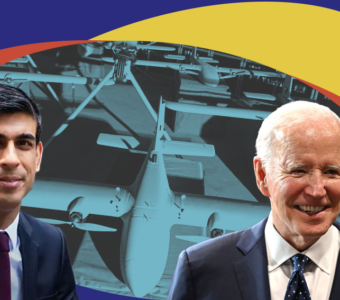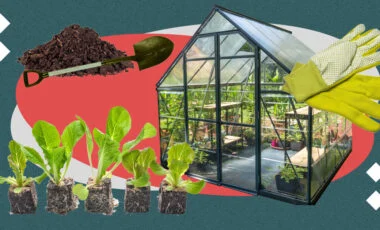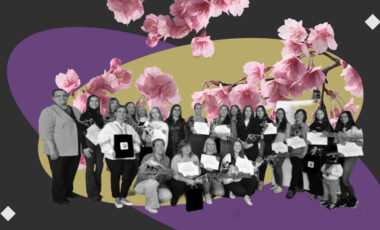Grain Wars: the hidden threat

The allusion to the first episode of the Star Wars film saga is not accidental: in the movie, the issue of taxation of trade routes became one of the drivers of the galactic war, and in reality, it was Russia's war on Ukraine that caused the duty-free access of Ukrainian goods to the EU market, which affected the sense of fairness of European manufacturers and led to the existing situation. The problems on the Ukrainian-Polish border were expected to end by October 15, 2023, or shortly after that date, because there were no other reasons for such an action apart from purely political ones. However, the parliamentary elections in Poland changed the ruling party in the Sejm, the prime minister, but not the situation on the border. It even worsened — from November 6, Polish carriers gradually blocked all checkpoints, and later, farmers joined them. Since February 20, Ukrainian carriers have been engaged in the same way — the throughput capacity of points has collapsed to some ancient times.
Everything that happens there triggers the Ukrainian public, which perceives the actions of Polish farmers and the reaction of official Warsaw to their antics as a blow in the back. It is no accident that in response to the spilled grain from Ukrainian trucks and grain wagons, trawlers with combines destroyed in Ukrainian fields reached the border as an illustration of the price for the harvest that Ukrainian farmers pay, which their Polish colleagues treat so disrespectfully. However, in this case, the request for solidarity remained unanswered because the union of Polish agricultural producers with Belgian, Spanish, French, Portuguese, Czech, and German ones had already taken place — partly against Ukraine.
Export discord
It's unpleasant to hear, but Ukraine is no longer the focus of world and European attention — at least not all the time. Occasionally, issues arise that concern other governments and societies no less than the distant war in Ukraine and everything directly or indirectly related to it. For them, a pile of manure spilled on the cobblestones in Brussels is no less poignant than the sad sight of blocked trucks with humanitarian aid or a boat for the Armed Forces for Ukrainians, especially since they are links of the same chain.
While Polish farmers are blocking the border with Ukraine, demanding to stop the passage of Ukrainian grain through the territory of the country, the agrarians of Greece, Germany, France, Italy, and other European countries are giving an attitude. Without Ukraine on their border, they still block highways and protest near administrative buildings, even under the EU headquarters. For example, on February 26 in Brussels, tires were burning, firecrackers were exploding, and police water cannons were working — all this was the accompaniment to the meeting of EU agriculture ministers.
Farmers' complaints to European government officials related to the increase in fuel costs, the "green transition" (restrictions on the use of agrochemicals and nitrogen emissions, increased requirements for the use of water resources and soil exploitation, etc.), and complicated access to subsidies. All this prevents farmers from doing their usual farming, but none of this has anything to do with Ukraine in general. However, the connection appears at the second level of multi-layered requirements.
Against the background of increasing costs for environmental protection and decreasing aid in the form of subsidies, the cost price of agricultural products is increasing. The import of cheap products from North Africa (a personal discomfort for Italian producers) and South America (a pan-European challenge) worries EU farmers in the same way as the abolition of tariffs and quotas for Ukraine. Actually, this is another reason for the combine-tractor protest. The value and volume of Ukrainian food is a matter of negotiations between farmers and governments, governments and the European Commission, the European Commission, and Ukraine. The algorithm is exactly like this because foreign farmers cannot talk with Ukraine in principle (but not vice versa), and governments do not see the subject of discussion because the European Commission removed quotas and duties. No EU member state can decide at its own discretion on such issues as trade and the free movement of goods across borders. None, except for Poland, whose government will be deailing with the problems created by its predecessors for a long time to come.
Ukraine — European Commission
In January, Ukraine declared its readiness for debates with EU members regarding risks from agricultural exports and Ukraine's trade representative, Taras Kachka, about achieving a harmonious level of trade with EU countries and the absence of grounds for a jump in increasing supplies. In general, the message is correct, but it should have been more actively brought to the ears of Polish farmers. Ukrainians frankly failed to communicate with the neighboring society that it was not Ukraine that caused the problems of Polish farmers. Therefore, the fears not only did not disappear either then or two months later but also intensified to the level of supranational intervention:
– On January 31, Vice President of the European Commission Valdis Dombrovskis presented to the EU Council proposals for extending duty-free trade with Ukraine and Moldova for another year;
– On February 21, EU ambassadors adopted the relevant text;
– On March 7, it was supported by the European Parliament Committee on Foreign Trade;
– On March 13, MEPs approved the extension of trade liberalization for Moldova until June 5, 2025. Proposals regarding Ukrainian agricultural exports to the EU were returned for revision to " strengthen guarantees for EU farmers."
For this purpose, it is envisaged to expand the powers of the European Commission "to take quick measures if significant disruptions occur on the EU market or the markets of one or more EU countries due to Ukrainian imports, including emergency braking for particularly sensitive agricultural products." Specifically, European lawmakers voted to increase the "sensitivity" of Ukrainian poultry meat, eggs, and sugar — exceeding their export volumes relative to the average value over the past two years will lead to the restoration of tariffs.
In addition, it is noted that liberalization measures depend on Ukraine's respect for democratic principles, human rights, the rule of law, and its constant efforts in the fight against corruption and organized crime. The most interesting thing is that the liberalization of trade with Moldova is explained, apart from the Association Agreement, by a strong blow to it due to "Russia's aggression against Ukraine, as it largely relies on Ukrainian transit routes and infrastructure for its own exports."
It looks rather bleak, but transferring the situation to the plane of discussion at the EU level is an unconditional breakthrough against the background of the traffic jam at the border. It gives reason to hope for a normal result that will suit European manufacturers and Ukrainian exporters. Separate initiatives by the parliaments of Latvia, Poland, and the Czech Republic, with a call to the European Council to ban the import of grain and oils of Russian and Belarusian production into the EU, testify to the course towards achieving this. Finally, it gives a chance for the normalization of relations between Warsaw and Kyiv.
Ukraine — Poland
The 5-point "Plan of Mutual Understanding" published at the end of February was not perceived positively by the Polish government, and it did not appear at the meeting with the Ukrainian part (after publicly warning about it the day before, of course). The picturesque picture of the Ukrainian government delegation standing on the border turned out to be quite strange, but the purpose of this step was not so much urgent negotiations there but a demonstration of readiness to conduct them. From the outside, it may appear that Ukraine has come to terms with its position as a beggar and the reputation of a country against which one can do arbitrariness without restraint, but emphasizing this with the help of meme-making is too cynical. Forgive me for the unpleasant analogy, but a painful pimple on the western border can definitely be eliminated at the negotiation table, unlike a bleeding wound on the eastern border, which, moreover, is constantly scratched. However, an ultimatum of either closing the issue now or closing the border, removing Polish goods from the shelves, forgetting all the good, and concentrating on the bad will not help here. Two reasons can explain the border activity of Poles — irrational and rational.
Irrational is the passivity of the authorities and the police during the blockade of the border with Ukraine, which allowed them to perceive protests at border crossings as a universal tool of pressure that can be applied everywhere. Actually, the protest spokesman, Roman Vaschyk, has already announced the fight for "restoring the profitability of production, which covers many issues." Inspired by the success (Ukrainian grain is still banned in Poland, and the European Commission also agreed to certain concessions), Polish farmers went further. First, they managed to block the border with Lithuania and Slovakia, and then they set up a similar one along the border with the Czech Republic. Then it was Germany's turn — on March 17, they blocked two checkpoints. They demanded an immediate ban on the import of agricultural products from Ukraine and other non-European countries into the EU. In response to all appeals to logic, farmers voice their unsubstantiated suspicions that Ukrainian grain in transit is still returned to Poland. Meanwhile, a protest was announced for March 20 in 500 places across Poland, with the participation of 70,000 people.
The rational reason is the simultaneous approach of local elections in Poland and elections to the European Parliament that determine both the passivity of Tusk, who came to power relatively recently and does not risk upsetting society after a scandalous and difficult campaign and the energy of "PiS" and "Confederation", which seek revenge and traditionally rely on farmers. From the point of view of the Polish authorities, passing off a small part of Polish society as eccentrics who are chaotically rushing between checkpoints at various borders is a better strategy than trying to shoot sparrows with a cannon and give competitors a chance not to wait for the elections. An attempt by protesters at the beginning of March to test the durability of police helmets in Warsaw showed that the government would not hesitate in a critical situation.
Objective data show that trade between Ukraine and Poland brings mutual benefits, which are measured differently. For Warsaw, it means more than a two-fold increase in exports over imports. For Ukraine, it means filling the gaps created by the war. Therefore, the reactionary boycott of Polish-made goods by Ukrainians can be symbolically justified and even supported a little. Still, in the perspective of the indefinite duration of hostilities, it is a shot in the stomach. As for Poland, one group of producers, whose contribution to the common coffers does not exceed 2% of GDP, can neither dictate the direction of economic development nor influence the country's strategic interests. Most importantly, according to the results of 2023, the influence of Ukrainians on the GDP of the neighboring country reached 1 percent.
Ukraine — Poland — Russia
Rafal Mekler, a "confederate" and a deep admirer of the transportation of goods to Russia and Belarus, was the first to report about the breaking of seals, the opening of hatches, and the spilling of Ukrainian grain onto the ground. The pro-Russian online TV "MIR" was the first to report on the incident with the emptying of 10 wagons of Ukrainian corn at the Kotomiezh station near Bydgoszcz and showed a photo and video. A photo of a Polish tractor with a call to Putin to deal with Ukraine, Brussels, and the Polish government cost the driver opening the criminal proceedings, but it went viral in all European media. Individual Polish protesters turned out to be ardent Russophiles with a rich portfolio of participation in active Russian events. In general, the topic of the Kremlin's extreme interest in the situation on the Ukrainian-Polish border is already so well-worn that there is nowhere to touch on it. The American Politico directly calls Putin the only winner in the trade conflict between Ukraine and Poland.
The Russian position on this issue has long been known: "The real owners of Ukrainian grain are the American corporations Monsanto and BlackRock, which bought Ukrainian black soils for nothing and now want to destroy agriculture in Europe to breed worms there to replace meat, and make gender-neutral toilets genetically modified organisms." Specifically, attention is also paid to farmers: they are systematically presented as desperate victims of the new world order since they are the foundation of the old order due to their principled conservatism. In search of allies and a source of destabilization in Europe, Russia does not care what skin it tries on — a champion of traditional values or a defender of farmer's rights so that it works. Therefore, the logical conclusion of these insinuations is simple — neither the state nor the entire EU can stop the dictates of global corporations on Polish soil, but only you know who.
In this particular case, Ukrainians were "lucky" to have a common state border only with the Poles (because in the east, this border is already a civilizational one) — under the condition of a different geography and history, in which Ukraine would have moved several thousand kilometers towards the Atlantic, but strangely did not become part of united Europe, the borders would be blocked by Belgian or French tractors. Of course, this is not at all an attempt to justify the actions of the Polish farmers, but without understanding their true motives, we will go down the wrong path.























































